This place was awful. All their concerns are about getting paid from your insurance. The groups are about the 12 steps in different orders. The one on one therapy only happens if you initiate it. They determine your length of stay in one meeting how can you make me stay 30 6 ...
About Pyramid Healthcare Inc. – Altoona Detox and Residential Treatment Center
Veterans are particularly vulnerable to experiencing substance use disorders, PTSD, moral injury, suicidal ideation, depression and other behavioral health concerns. Pyramid Healthcare has partnered with PsychArmor to help enhance their curriculum materials that focus on veteran support. This organization is a leader in military culture training. The staff at Pyramid Healthcare know that military members have unique experiences and different treatment needs that should be considered before treatment plans are put into place.
On top of this specialized curriculum the facility also offers specific courses to help parents, patients with anger problems, individuals struggling with gender specific trauma and those with nutritional education needs. The facility also has some notable amenities including an onsite fitness center, an indoor basketball court and a large outdoor recreation area. The clinic also offers unique therapies that focus on community services, drumming, art expression and yoga.
Pyramid Healthcare accepts Medicaid, private insurance, state and county funding, union funding and Employee Assistance Programs. The facility also accepts self pay cash, credit card or personal check payments. If you’re unable to afford treatment, the facility may be able to offer financial assistance options.
Facility Overview
Latest Reviews
Rehab Score
Gallery
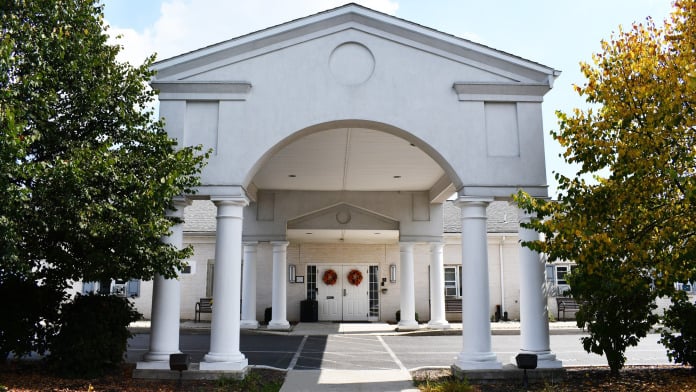

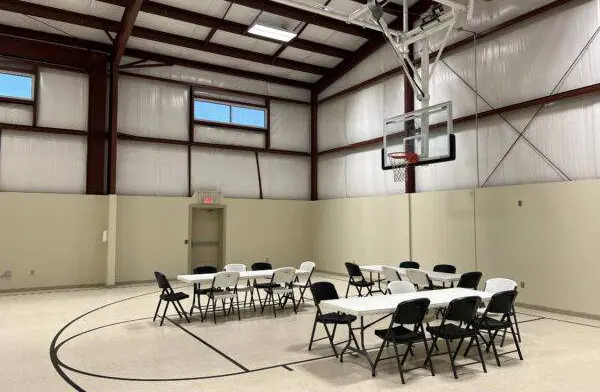
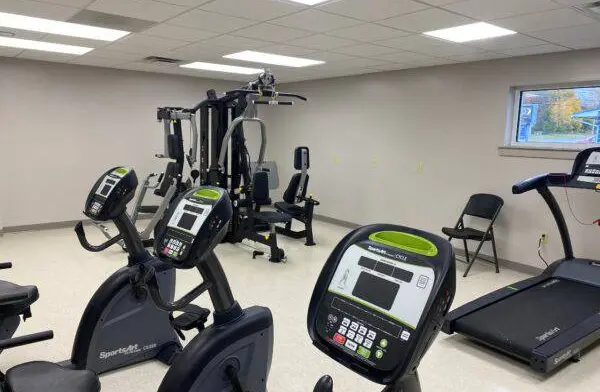
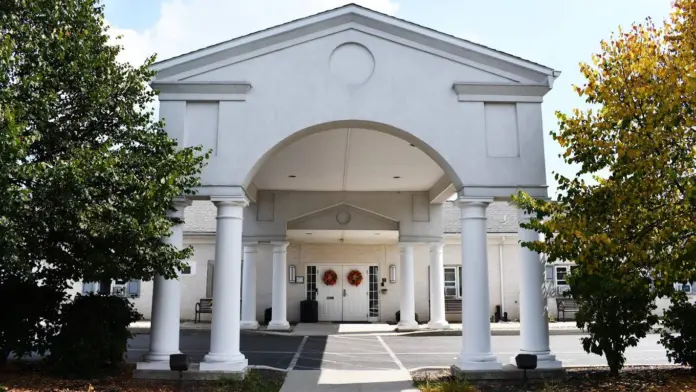
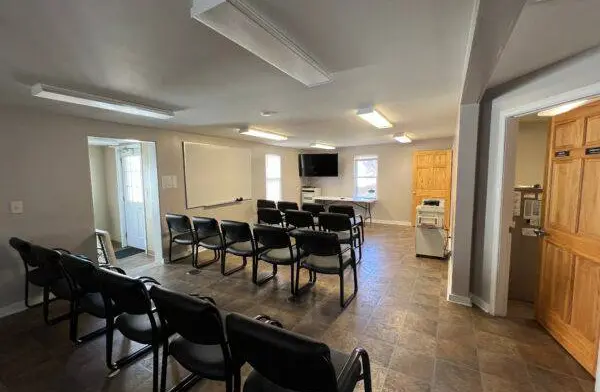






Accepted Insurance





Other Forms of Payment
Private insurance refers to any kind of healthcare coverage that isn't from the state or federal government. This includes individual and family plans offered by an employer or purchased from the Insurance Marketplace. Every plan will have different requirements and out of pocket costs so be sure to get the full details before you start treatment.
Self-pay involves paying for treatment out of your own pocket. You can use savings or credit, get a personal loan, or receive help from family and friends to fund your treatment. If you don't have insurance or your insurance plan doesn't cover a specific program, self-pay can help ensure you still get the care you need.
Medicaid is a state based program that helps lower-income individuals and families pay for healthcare. Medicaid covers addiction treatment so those enrolled can use their coverage to pay for rehab. When a program accepts Medicaid the client often pays very little or nothing out of their own pocket.
Financial aid can take many forms. Centers may have grants or scholarships available to clients who meet eligibility requirements. Programs that receive SAMHSA grants may have financial aid available for those who need treatment as well. Grants and scholarships can help you pai for treatment without having to repay.
Private insurance refers to any kind of healthcare coverage that isn't from the state or federal government. This includes individual and family plans offered by an employer or purchased from the Insurance Marketplace. Every plan will have different requirements and out of pocket costs so be sure to get the full details before you start treatment.
Medicare is a federal program that provides health insurance for those 65 and older. It also serves people under 65 with chronic and disabling health challenges. To use Medicare for addiction treatment you need to find a program that accepts Medicare and is in network with your plan. Out of pocket costs and preauthorization requirements vary, so always check with your provider.
Military members, veterans, and eligible dependents have access to specific insurance programs that help them get the care they need. TRICARE and VA insurance can help you access low cost or no cost addiction and mental health treatment. Programs that accept military insurance often have targeted treatment focused on the unique challenges military members, veterans, and their families face.
Addiction Treatments
Levels of Care
Outpatient Programs (OP) are for those seeking mental rehab or drug rehab, but who also stay at home every night. The main difference between outpatient treatment (OP) and intensive outpatient treatment (IOP) lies in the amount of hours the patient spends at the facility. Most of the time an outpatient program is designed for someone who has completed an inpatient stay and is looking to continue their growth in recovery. Outpatient is not meant to be the starting point, it is commonly referred to as aftercare.
Adults in their residential treatment programs live on-site in a structured setting where they will receive education, therapy, and medical care to assist them in working through personal issues and ultimately overcoming their addiction. They focus on educating clients on the disease of addiction and giving them the tools and skills they need to be successful in recovery outside of residential treatment. Clients have access to gender-specific housing and amenities and participate in recreational activities.
At certain points in the recovery process, it's important to have support available 24/7. 24-hour clinical care offers a safe environment in which to recover from drug or alcohol addiction in peace, knowing medical detox and other treatment will happen with professionals on hand.
After long-term substance abuse, the body can develop a chemical dependency on toxic substances. Sudden removals or detox, of these substances from the body can cause discomfort. Detoxification at a Pyramid Healthcare facility includes 24-hour nursing care, medications for pain relief, and an element of therapy for the emotional challenges that clients may experience during this initial phase of recovery. Clients will also meet with detox specialists to discuss their treatment history and begin working on additional treatment plans to ensure success after the detoxification stage is complete.
Treatments
The goal of treatment for alcoholism is abstinence. Those with poor social support, poor motivation, or psychiatric disorders tend to relapse within a few years of treatment. For these people, success is measured by longer periods of abstinence, reduced use of alcohol, better health, and improved social functioning. Recovery and Maintenance are usually based on 12 step programs and AA meetings.
Drug rehab in Pennsylvania is devoted to the treatment of addiction. Levels of care, treatment methods, and settings differ, but the aim of each program is to end drug dependency and empower participants to achieve long-term recovery.
Pyramid Healthcare provides dual diagnosis treatment, which addresses symptoms of both mental health disorders and addiction, for adults at select facilities. By combining the most effective aspects of mental health care and substance abuse into a continuum, the chances of a client successfully maintaining sustained sobriety increase greatly. Many Pyramid Healthcare clinicians and counselors are certified in the treatment of co-occurring mental health disorders and are able to effectively and expertly apply the tenets of dual diagnosis treatment. Clients receiving dual diagnosis treatment will receive psychiatric care and proper medication to address their diagnosis while simultaneously participating in addiction recovery programs.
Opioid rehabs specialize in supporting those recovering from opioid addiction. They treat those suffering from addiction to illegal opioids like heroin, as well as prescription drugs like oxycodone. These centers typically combine both physical as well as mental and emotional support to help stop addiction. Physical support often includes medical detox and subsequent medical support (including medication), and mental support includes in-depth therapy to address the underlying causes of addiction.
Substance rehabs focus on helping individuals recover from substance abuse, including alcohol and drug addiction (both illegal and prescription drugs). They often include the opportunity to engage in both individual as well as group therapy.
Programs
Adult rehab programs include therapies tailored to each client's specific needs, goals, and recovery progress. They are tailored to the specific challenges adult clients may face, including family and work pressures and commitments. From inpatient and residential treatment to various levels of outpatient services, there are many options available. Some facilities also help adults work through co-occurring conditions, like anxiety, that can accompany addiction.
Young adulthood can be an exciting, yet difficult, time of transition. Individuals in their late teens to mid-20s face unique stressors related to school, jobs, families, and social circles, which can lead to a rise in substance use. Rehab centers with dedicated young adult programs will include activities and amenities that cater to this age group, with an emphasis on specialized counseling, peer socialization, and ongoing aftercare.
Nearly one million adults age 65 and older live with a substance use disorder. Treatment providers who specialize in senior care understand the social, psychological, and physical effects of aging and how they relate to recovery. They can help clients address particular challenges and risks they may face as they get older such as overdosing and medication interactions and dependencies.
Men face specific challenges and concerns when seeking addiction treatment. Gender-specific recovery programs help them tackle these issues head-on in an environment that's focused, targeted, and distraction-free. It also gives them the opportunity to connect with and learn from other men who have been through a similar journey and can offer support for the next step.
Rehabs for women provide a safe, nurturing space for female clients to heal. These treatment programs consider the specific obstacles that women can face during recovery and place a special emphasis on mental, social, physical, and reproductive health. They explore how each woman's experience has shaped the trajectory of their substance use, addressing issues such as sexual abuse and past trauma.
Serving in the military is both mentally and physically challenging, and can result in trauma that persists even after combat ends. Military programs are tailored to the specific and often complex needs of active duty personnel, veterans, and military families. Clients often access these programs through the U.S. Department of Veterans Affairs (VA).
Clinical Services
The Experiential (ROPES) Therapy program is designed to challenge the client's self-defeating limitations. A certified experiential therapist facilitates low element, experiential therapy groups that address client self-esteem and trust building issues with a variety of group and team-building exercises.
Family involvement can be critical to a client’s success during and after treatment. Pyramid Healthcare has developed a family program designed to educate the client’s family members about the disease of addiction. This program helps both the individual in specialty treatment and their family learn skills and develop behaviors effective in minimizing the negative impact of the addiction on the familial relationship. Their family program can also open lines of communication between the client and their family members. Pyramid Healthcare counselors can provide family counseling if it is requested by the client.
Group therapy is any therapeutic work that happens in a group (not one-on-one). There are a number of different group therapy modalities, including support groups, experiential therapy, psycho-education, and more. Group therapy involves treatment as well as processing interaction between group members.
In individual therapy, a patient meets one-on-one with a trained psychologist or counselor. Therapy is a pivotal part of effective substance abuse treatment, as it often covers root causes of addiction, including challenges faced by the patient in their social, family, and work/school life.
Assisting their clients in their search for recovery and a higher quality of life is a crucial part of their mission. In order to help individuals struggling from addiction successfully reintegrate into the community once they have completed treatment, they provide extensive life skills training at their halfway houses and residential programs. Pyramid Healthcare specialists and clinicians collaborate in an effort to provide clients with guidance and instruction on a variety of real-world topics. These include financial management, job preparation, communication skills, social etiquette, volunteerism, and the appropriate utilization of community resources.
Trauma therapy addresses traumatic incidents from a client's past that are likely affecting their present-day experience. Trauma is often one of the primary triggers and potential causes of addiction, and can stem from child sexual abuse, domestic violence, having a parent with a mental illness, losing one or both parents at a young age, teenage or adult sexual assault, or any number of other factors. The purpose of trauma therapy is to allow a patient to process trauma and move through and past it, with the help of trained and compassionate mental health professionals.
Cognitive behavioral therapy (CBT) in Pennsylvania can be helpful to individuals who are experiencing substance use disorder and various mental health conditions. It helps you identify damaging thought and behavior patterns and replace them with healthy ones.
Dialectical behavior therapy in Pennsylvania is an evidence based technique that involves group therapy, individual therapy, and phone coaching. Group sessions focus on learning behavioral skills. Individual therapy gives you the opportunity to apply what you're learning to your personal situations. Phone coaching allows you to call your therapist during the week for help with challenging situations.
Motivational interviewing in Pennsylvania gives you the opportunity to share your perspective and explore your ideas and motivation for change. Your therapist will walk you through the four steps of engaging, focusing, evoking, and planning to empower you to make any desired changes in your life.
Amenities
-
Private Setting
-
Residential Setting
-
Gym
-
Recreation Room
-
WiFi
Accreditations

The Commission on Accreditation of Rehabilitation Facilities (CARF) is a non-profit organization that specifically accredits rehab organizations. Founded in 1966, CARF's, mission is to help service providers like rehab facilities maintain high standards of care.
CARF Accreditation: Yes

The Joint Commission, formerly known as JCAHO, is a nonprofit organization that accredits rehab organizations and programs. Founded in 1951, the Joint Commision's mission is to improve the quality of patient care and demonstrating the quality of patient care.
Joint Commission Accreditation: Yes

State Licenses are permits issued by government agencies that allow rehab organizations to conduct business legally within a certain geographical area. Typically, the kind of program a rehab facility offers, along with its physical location, determines which licenses are required to operate legally.
State License: Pennsylvania
Contact Information
1894 Plank Road
Duncansville, PA 16635












